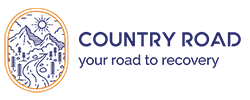Think about a time in your life that you got suddenly scared. Even if it happens for just a moment, our “fight or flight” instinct completely takes over. Fear is not only a feeling that overtakes your brain, but your body feels the effects as well. This is significant as we begin to understand the brain-body connection of PTSD and how traumatic stress takes a toll on our physical and mental health, often leading to substance abuse issues. In fact, general population surveys indicate that approximately 75% of people who misuse substances have experienced trauma at some point in their lives. When analyzing patients being treated for PTSD, studies found that 60-80% of the patients had co-occurring diagnoses of substance abuse, alcohol abuse, or dependence.
The truth is that there is a brain-body connection that directly links PTSD and substance abuse. It is imperative to recognize the correlation between these two disorders in order to receive effective treatment and begin the journey of lasting recovery.
Trauma & The Brain
The moment that trauma occurs, the primal instinct of fear occurs in both our brain and body. Fear begins in a part of our brain called the amygdala, which sends signals to the hypothalamus, activating our autonomic nervous system by releasing adrenaline and cortisol (known as the stress hormone). This release in the brain has immediate physical effects on our body, such as a rapid heart rate, dilated pupils, skin changes such as sweat or goosebumps, and a decreased perception of pain.
The ventral tegmental area (VTA) of the brain regulates memory, learning, reward consumption, and addictive behaviors through mediating the release of dopamine. When traumatic stress happens to an individual, a decrease in dopamine occurs, and this can lead to long-term alterations of the reward pathway. This explains the link between PTSD and substance abuse, as a person who has suffered from trauma starts to have problems with addiction as their altered brain now has more trouble regulating their reward consumption.
For people with PTSD, their fear-induced behavior becomes exaggerated after the traumatic event occurs, meaning that even non-threatening events can trigger an overactive stress response. This neurological study found that traumatic stress affects brain structure and function. The areas of the brain affected are those that play a critical role in stress response as well as memory, highlighting the typical symptoms of PTSD and how they lead to substance abuse issues that typically occur after an individual lives through a traumatic event. As the person deals with an altered mindset, their physical actions and decision-making start to change as well.
Trauma & The Body
When a person is trying to cope with PTSD symptoms, they often turn to drugs and alcohol in order to numb the pain or mask their feelings. It is estimated that up to three quarters of people who survive abuse or violent traumatic events, and up to a third of those who survive traumatic accidents or disasters, report drinking problems. The truth is that the temporary high from consuming substances only lasts a short while, and when it wears off, the PTSD symptoms will come back even worse than before.
For example, a person who is diagnosed with PTSD might suffer from sleep issues such as nightmares or insomnia. This person may start drinking in excess in order to combat these sleep problems; but, in reality, alcohol makes it harder for the body to achieve restful, quality sleep. “Self-medicating” with substances will only worsen PTSD symptoms in the brain and the body, making it even more likely that another disorder such as depression or addiction will develop.
The onset of alcohol and substance abuse is typically associated with the onset of PTSD symptoms, and an increase in substance misuse parallels the increase of PTSD symptoms. According to the patients involved in one study, individuals often turned to alcohol, marijuana, heroin, and benzodiazepines in an attempt to make their PTSD symptoms better.
A dual diagnosis of PTSD and substance abuse disorder means that one is likely to suffer from other mental and physical health issues. According to the National Center for PTSD, up to half of adults with both disorders also have one or more of the following problems:
- Panic attacks
- Compulsions (uncontrollable anxious urges such as checking the door locks over and over)
- Depression and other mood problems
- Attention problems
- Ongoing physical pain
- Long-term physical illness such as diabetes, heart disease, or liver disease
Effective treatment for both of these disorders is crucial. Seeking recovery before PTSD leads to further mental and physical health complications can save you years of pain. You cannot control how trauma has affected your brain and body in the past, but you can control how it looks in the future.
Treatment Options for PTSD & Substance Abuse
By recognizing and directly addressing the trauma that lies beneath substance abuse, you can begin your journey to a successful recovery. At Country Road Recovery Center, we specialize in co-occurring disorders and will design an individualized treatment plan for you to begin your successful pathway to growth and healing.
Our trauma-informed care team will provide a caring and supportive environment so you can take your life back and make it better than ever. Call or chat with us today to start your path to lasting recovery.


